This Spring, the UC Merced Library concluded its multi-year project to preserve, digitize, and make accessible films produced by University of California Agriculture and Natural Resources (UCANR). When the Library began accepting materials from UC Cooperative Extension (UCCE) offices around the state (local CEs under UCANR’s umbrella), archivists uncovered items that described and visualized the professional activities of farm advisors and home demonstration agents over the course of the twentieth century.
Formats found in the archive vary greatly (i.e.: pamphlets, newsletters, annual reports, photographs, negatives), but much of the materials fall under categories of either paper or photographic materials. So, when in 2019 the Library acquired several boxes of 16mm film reels from the UCANR statewide office, the California Agricultural Resources Archive (CARA) processing team was confronted with a new— but exciting— challenge.
Although many of the reel cans contained titles and other transcriptions, learning the exact content of each film required digitization. Even more significantly, the films were in bad shape. A strong smell of vinegar emanated from the boxes (a telltale sign of vinegar syndrome which occurs when the cellulose acetate reels decompose producing acetic acid) and many of the reels were concaved or brittle. Once vinegar syndrome begins it is irreversible and the films suffer embrittlement, shrinkage, and bubbling. If its effects go too far, it becomes impossible to play the media or complete a digital transfer.
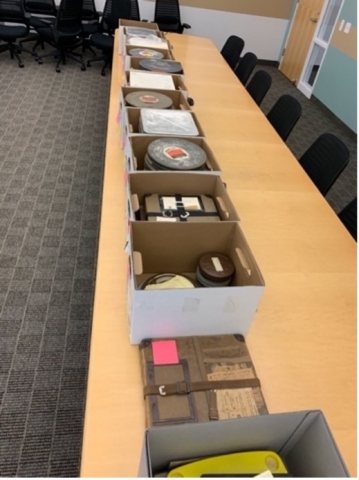
Boxes of film reels from the University of California Division of Agriculture and Natural Resources, UC Cooperative Extension Records.
Confronted with this urgency, the Library received funding from UCANR and Project CERES (a preservation grant from the United States Agricultural Information Network (USAIN)) to digitize the films. CARA’s Project Archivist spoke with Dawn Aveline, Director of Preservation Programs at Preservation Technologies, about their audiovisual laboratory MediaPreserve. Dawn conveyed that even though our materials were in various states of deterioration, they would be able to examine and likely digitize the decomposing reels.
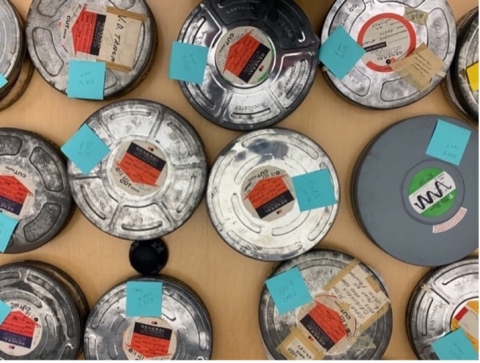
Film reels are sorted by title.
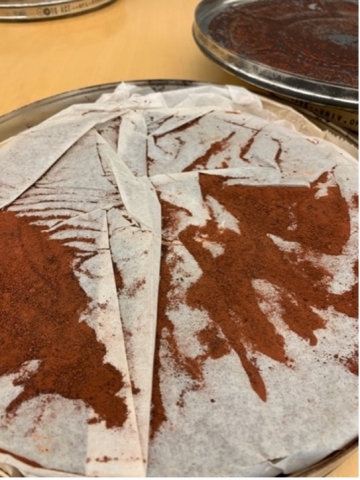
A rusty red powder from a deteriorating film can flakes off onto the object.
In total, we sent MediaPreserve eighty-seven reels for digitization and forty-nine films were identified. The reels along with their corresponding digital files were sent back to the Library. The digitized films are now available to view on Calisphere and the originals will be placed in our freezer for long term storage.
Dating from 1953 to 1979, the films, produced by UCCE personnel and collaborators, reflect UCANR activities like the 4-H youth development program, food and nutrition education, irrigation, rangeland management, the ag industry animals, and adolescent health. They reflect changes in public awareness about environmental and health concerns, and were produced as communication tools, representing valuable audiovisual documentation of those changes. For example, in the film You are what you eat, 1962, from a UCCE series called the Homemaker’s Notebook, nutritionist Marion Tate addresses the viewers about the importance of good nutrition practices for all ages. The films in the Homemaker’s Notebook series provide a historical lens for understanding the prevailing nutrition recommendations and food education practices of that time. It also reveals other societal norms of the early 1960s like clothing, interior design, and the family dynamics including the performance of gender roles.
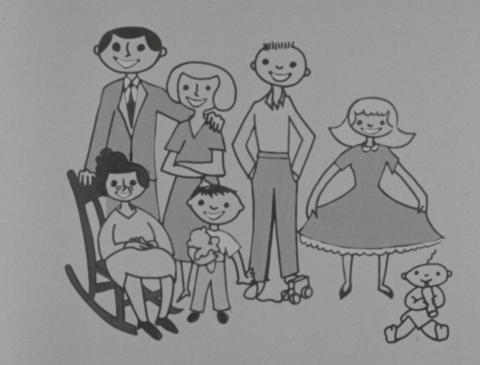
Another film titled Operation Fire Stop, visualizes a “one-year operational study to provide the Fire Services with new aids for mass-fire prevention.” (opening credits of operation film). In the film, the narrator describes several of the measures undertaken by Fire Stop collaborators such as the use of the use of grass plots for test burns, weather balloons to measure wind drifts and weather patterns, ignition pattern tests, and fire retarding chemicals. The narrator also conveys that “complete film records were made of each and every test.”
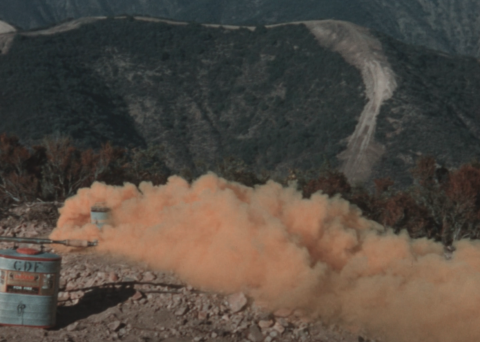
Modern irrigation equipment, shares clips from different irrigation equipment demonstrations to showcase modern implementations to distribute, utilize, and conserve water. The construction of canals is illustrated by the film’s visuals and discussed by the narrator; providing viewers with an understanding of how California waterways—still visible in our landscapes— were developed.
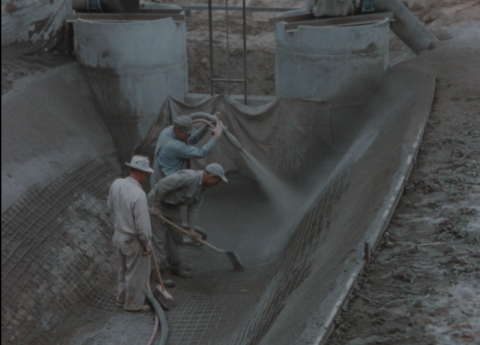
In September of 2022, UC Merced Library opened a photography exhibit, A Century of Impact in California's Counties: Highlights from the University of California Cooperative archive. Still shots from the digitized UCANR films made up several of the exhibit’s images, signifying the range of audiovisual materials used by UCCE to disseminate information about agriculture and rural living.
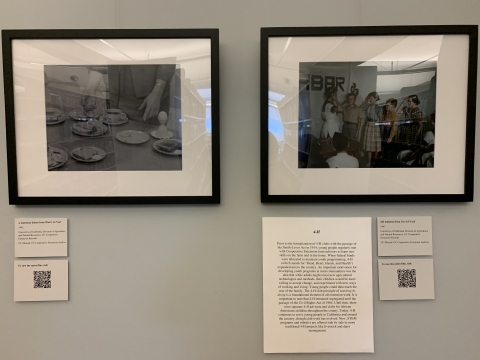
Still shots from two digitized UCANR films (What’s in food, The 4-H Trail) were part of a photography exhibit about UC Cooperative Extension curated by the Library.
In closing the exhibit, the Library hosted an event in May 2023, with local UCCE specialists, UC Merced extension specialists, and others who conduct work about agriculture, climate, and related topics. Guests learned about the Library’s endeavor to process collections from the UC Cooperative Extension archive and were presented with methods to access the materials online for research and teaching considerations.
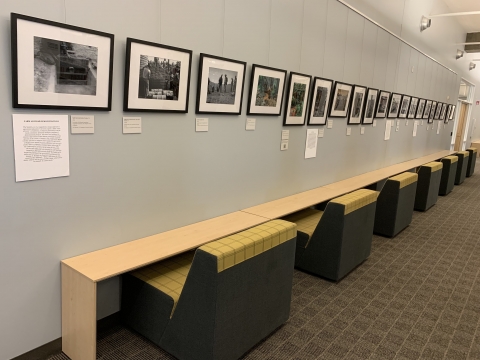
Photographs from the A Century of Impact in California's Counties: Highlights from the University of California Cooperative archive exhibit.
We look forward to more opportunities to share resources from the UC Cooperative Extension Archive!
Click here to view the entire UCANR film collection on Calisphere.

